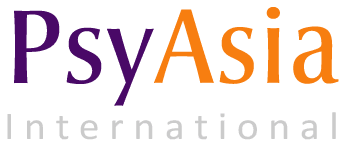There are several types of questions which will occur during an interview. These can be open questions, closed questions, questions which the respondent does not want to answer, reflective questions, leading questions and behavioral questions.
Open questions are questions which do not illicit a yes or no response. These types of questions give the respondent the opportunity to elaborate on a point and several topics can be discussed. An interviewer would ask this type of question if they want a more detailed response and can be helpful in finding more about a matter. This question could be a problem if the respondent is not sure how to respond, or perhaps they might talk too much and ‘take over’ the interview session. An example of an open ended question is ‘where do you see yourself in 10 years time?’ or ‘give me an example of when you had to lead a group’. This type of question also poses problems to the interviewer and interview process itself. Often the interviewer is uncertain how to grade responses to open questions. Furthermore, given that the field of response is left wide open to the respondent, this type of question introduces an inherent drop in reliability (consistency) between candidates.
Closed questions illicit a limited response, which is usually a ‘yes’ or ‘no’ answer. These questions are good for getting a quick response to a question or just getting some facts. An example of a closed question is ‘do you like working in groups?’ or ‘When did you leave your last job?’. Closed questions rarely give the respondent an opportunity to be creative or shine.
Reflective questions are useful in cases when an interviewer wants to gain more information about a matter, or wants to clarify some points. This shows to the candidate that the interviewer is listening to what they are saying and encourages the responded to elaborate. Reflective questions involve basically rephrasing a point. An example of a reflective question would be ‘So based on that point, you prefer to work to work with people?’ or ‘I suppose that is true; dealing with matters can be very time consuming?’.
Leading questions are questions which hint the answer to a candidate. These questions can be problematic if the interviewer wants to gain an objective view of a matter, and a candidate might be influenced by the question. It might help in cases where the interviewer might want to see the candidate’s response and see if they actually agree or disagree with a statement. An example of a leading question is ‘most people here like to work in groups, do you like this type of work?’ or ‘I assume that you get along well with people?’ This type of question, by its very nature, leads to candidate to respond in a certain way and may not therefore reflect the true person.
Behavioral questions are questions which elicit specific examples of behaviors that the respondent has demonstrated in the past. Based on the notion that past performance is the best predictor of future performance, the interviewer will ask something like “Can you tell me about a time when you had to make a critical decision in a short space of time. Outline the situation, your contribution and the outcome of that decision and tell me what you might do differently if that problem occurred again”. Behavioral interviews are often seen as being highly valid predictors of job performance provided they are linked to the job by way of thorough job analysis. However, they are less useful with those who have little working experience given that such people will have few examples to recall.
Being aware of the different types of questions in an interview will allow the interviewer and the interviewee to be better prepared.
PsyAsia International offers training in behavioral interviewing. Please visit our training pages at our website for more details.



